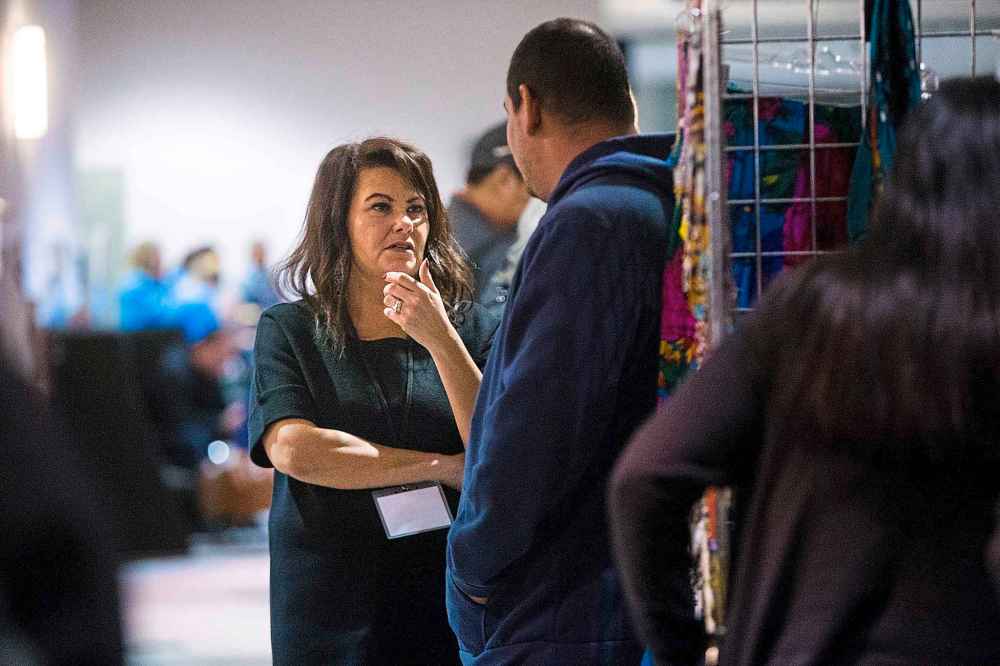First Nations parents resent appeal of welfare ruling
Advertisement
Read this article for free:
or
Already have an account? Log in here »
To continue reading, please subscribe:
Monthly Digital Subscription
$1 per week for 24 weeks*
- Enjoy unlimited reading on winnipegfreepress.com
- Read the E-Edition, our digital replica newspaper
- Access News Break, our award-winning app
- Play interactive puzzles
*Billed as $4.00 plus GST every four weeks. After 24 weeks, price increases to the regular rate of $19.00 plus GST every four weeks. Offer available to new and qualified returning subscribers only. Cancel any time.
Monthly Digital Subscription
$4.75/week*
- Enjoy unlimited reading on winnipegfreepress.com
- Read the E-Edition, our digital replica newspaper
- Access News Break, our award-winning app
- Play interactive puzzles
*Billed as $19 plus GST every four weeks. Cancel any time.
To continue reading, please subscribe:
Add Free Press access to your Brandon Sun subscription for only an additional
$1 for the first 4 weeks*
*Your next subscription payment will increase by $1.00 and you will be charged $16.99 plus GST for four weeks. After four weeks, your payment will increase to $23.99 plus GST every four weeks.
Read unlimited articles for free today:
or
Already have an account? Log in here »
Hey there, time traveller!
This article was published 25/11/2019 (2165 days ago), so information in it may no longer be current.
On the same day Ottawa began arguing why it should not have to compensate First Nations children who were taken into the on-reserve welfare system, hundreds met in Winnipeg to make sure history doesn’t repeat itself.
“Alarming.” “Disheartening.” “A slap in the face.”
Those were just a few reactions First Nations parents in attendance at the three-day Bringing Our Children Home conference in Winnipeg had when asked about the legal challenge unfolding some 2,000 kilometres west in front of the Federal Court.
On Sept. 6, the Canadian Human Rights Tribunal ordered the federal government pay every child who was “unnecessarily” taken from their home on reserve and put into care since 2006 up to $40,000 each. Parents and grandparents would also be eligible for additional compensation under the maximum compensation order.
The ruling cited a discriminatory gap between funding available to children on-reserve and funding for off-reserve services.
Ottawa has said the order could cost as much as $8 billion and filed for a judicial review, in which it asked the Federal Court to scrap it altogether.

Also in court was Cindy Blackstock with the First Nations Child and Family Caring Society and the Assembly of First Nations, both of which want the ruling to be upheld so an estimated 54,000 children benefit. Blackstock filed the human rights complaint back in 2007.
“We have to ensure that all children that have been affected by child welfare in this country are properly compensated,” said Kevin Hart, Manitoba regional chief for the AFN. Hart wants to focus now on how the compensation will be distributed.
So did many at the RBC Convention Centre Monday. Craig Cook, a father from Bloodvein First Nation, came to Winnipeg to participate in the First Nations Family Advocate and Assembly of Manitoba Chiefs-run conference on the future of the child welfare system in Manitoba.
“You can’t put a number on how even to compensate them, but there has to be some kind of compensation,” said Cook, a former chief. “I think the courts will support us. I’m hopeful.”
During the first day of the event, which takes place until Wednesday, attendees analyzed Bill C-92, which seeks to establish a framework fo Indigenous communities to exercise jurisdiction over child and family services. (The AMC has been clear that it wants to be exempt from the bill, preferring to enact a different system called the Bringing Our Children Home Act.)
In an impassioned lecture, Mi’kmaq lawyer and activist Pamela Palmater criticized the bill, which comes into force in the new year, for not committing any funding.
“We are negotiating genocide. We are trying to find ways to navigate genocide, survive and still protect our children when [the government has] the numbers, they have the wealth, they have everything,” Palmater told the audience. “But what they don’t have is our ways and our spirit and our connectedness and our strength and our resilience.”
Melanie Harper, a member of Kinonjeoshtegon First Nation in the Interlake who is helping her brother raise eight children, also pointed to promised funding as the key factor missing in overhauling a chronically underfunded system.
“My mother and I have helped [my brother] to keep his kids out of CFS care,” she said. “It takes a whole family and a whole community to help raise children.”
maggie.macintosh@freepress.mb.ca
Twitter: @macintoshmaggie


Maggie Macintosh
Education reporter
Maggie Macintosh reports on education for the Free Press. Originally from Hamilton, Ont., she first reported for the Free Press in 2017. Read more about Maggie.
Funding for the Free Press education reporter comes from the Government of Canada through the Local Journalism Initiative.
Every piece of reporting Maggie produces is reviewed by an editing team before it is posted online or published in print — part of the Free Press‘s tradition, since 1872, of producing reliable independent journalism. Read more about Free Press’s history and mandate, and learn how our newsroom operates.
Our newsroom depends on a growing audience of readers to power our journalism. If you are not a paid reader, please consider becoming a subscriber.
Our newsroom depends on its audience of readers to power our journalism. Thank you for your support.


